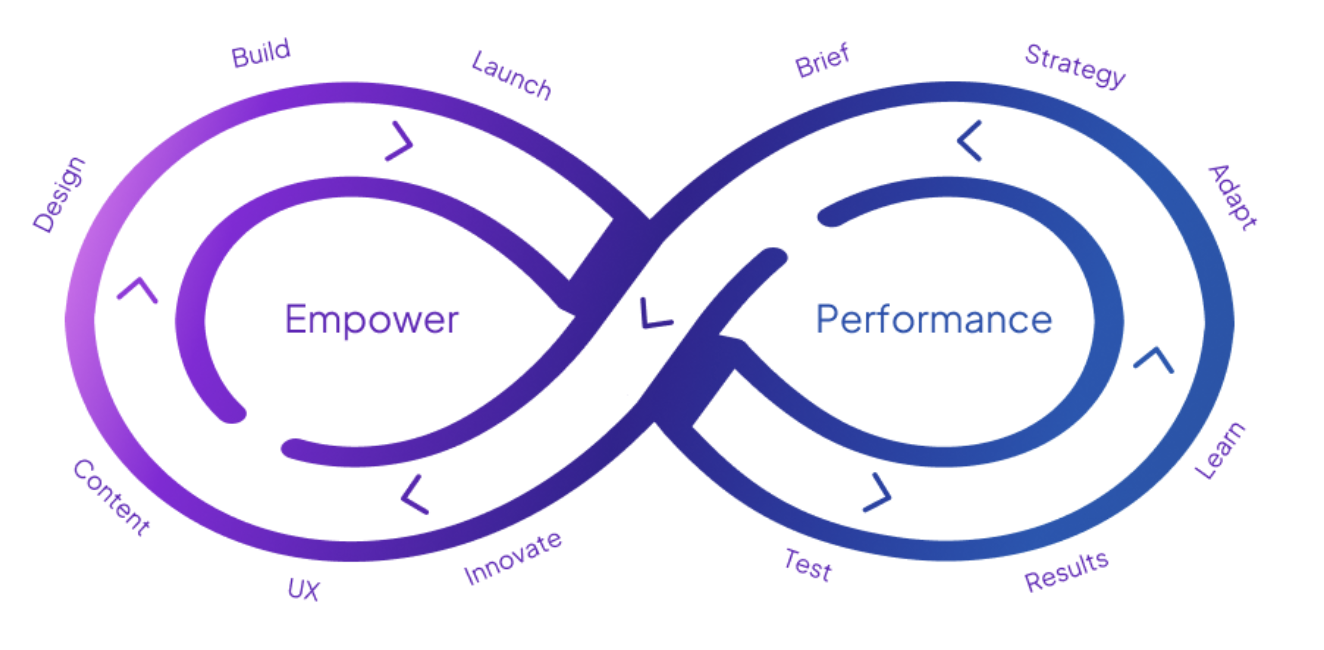The new kid in town: AI Marketing
In this post, we’ll explore how AI marketing works and its potential benefits for businesses in 2023.
How AI Marketing Works
Artificial intelligence (AI) has changed the game for marketers, providing them with new tools to better understand their customers and create more effective campaigns. AI marketing refers to the use of machine learning algorithms and other AI-based technologies to analyse data and automate marketing processes.
Step 1: Data Collection
AI marketing starts with collecting data on your customers. This can include information on their demographics, interests, buying habits and more. This data can be collected from various sources such as website analytics, social media and customer relationship management (CRM) systems.
Step 2: Data Analysis
Once data is collected, AI algorithms are used to analyse it and identify patterns and insights. This helps marketers understand their customers’ preferences and behaviour, which can be used to personalise marketing campaigns and increase their effectiveness.
Step 3: Predictive Modeling
AI algorithms can also be used to make predictions about future customer behaviour. For example, an AI system can predict which customers will likely buy a product in the near future based on their past behaviour and other factors. This information can then be used to target marketing efforts to those customers.
Step 4: Automated Campaigns
AI can also automate many marketing tasks, freeing up time for marketers to focus on giving the marketing mix a human touch. For example, AI can be used to personalise email campaigns, select target audiences and optimize ad spend.
Step 5: Continuous Improvement
As AI collects more data and analyses it, its predictions and marketing strategies become more accurate over time. This creates a feedback loop that allows AI to continually improve its marketing efforts.

AI involves the use of scientific models and principles in cognitive science to gather and analyse customer data to make predictions and decisions. This involves the collect-reason-act cycle and the use of machine learning (ML) and computational statistics to build models based on collected data. ML involves the study of algorithms and the use of neural networks to simulate probabilistic reasoning.
AI also makes use of Bayesian networks, which predict outcomes based on probabilities of known causes. These scientific approaches allow for efficient behavioural targeting through AI and help eliminate human bias. This is often also referred to as Algorithmic Marketing.
AI-powered marketing solutions
AI platform solutions streamline operational processes, automate simple tasks, and provide relevant solutions and a better customer experience. These elements make AI essential in serving today’s demanding consumer market.
Here are some examples of AI platform solutions specifically designed for marketing:
- Marketo: a marketing automation platform that uses AI to personalise customer interactions and improve conversion rates.
- Adobe Experience Cloud: a suite of AI-powered marketing solutions that help automate personalization, content creation and customer journeys.
- Salesforce Einstein: an AI platform that provides marketing insights, personalized recommendations, and predictive lead scoring.
- Acquia CDP: a customer data platform that uses AI to create a unified customer profile, personalize experiences, and measure engagement.
- Optimizely: a platform that uses AI to optimise website and mobile experiences, personalise product recommendations and improve conversion rates.
- Verint Customer Engagement: a platform that uses AI to automate customer interactions, personalise experiences and improve customer satisfaction.
- AgilOne: a customer data platform that uses AI to provide real-time personalisation, predictive recommendations and omnichannel insights.
Leveraging AI Marketing to grow your business
AI marketing has the potential to revolutionise the way businesses reach and engage with their customers. It can help a brand become more efficient and responsive, allowing for immediate communication and real-time personalisation.
AI marketing in modern businesses involves the use of a central AI platform for data collection and analysis to gain market intelligence. This enables marketers to reach their target audience with tailored and effective messages at the right time.
AI can help companies create more effective campaigns and drive better results by providing marketers with new insights and automating many marketing tasks. There are three main applications of AI in marketing involve data analysis, natural language processing, content creation and real-time personalisation
- Data analysis involves predictive and prescriptive analytics to help marketers make data-driven decisions on matters such as media buying
- Content creation and real-time personalisation involve the use of AI for content creation and personalization to create more efficient and personalized experiences for customers
- Natural language processing is applied in voice and image recognition technologies like speech recognition and voice search.
AI marketing has already proven its worth as a valuable tool for businesses looking to improve their marketing efforts. By leveraging the power of data and AI algorithms, marketers can better understand their customers, create more personalised campaigns, and achieve better results.